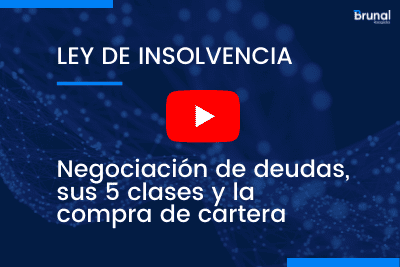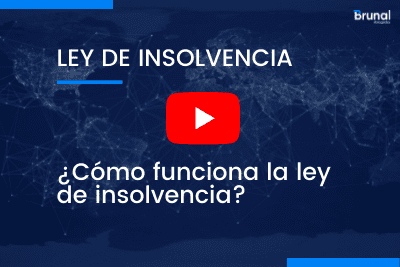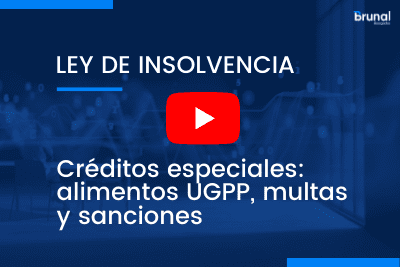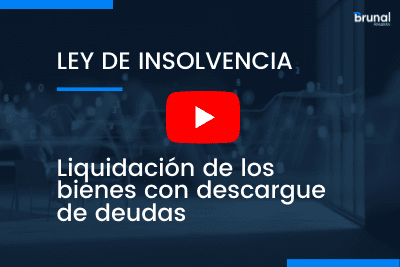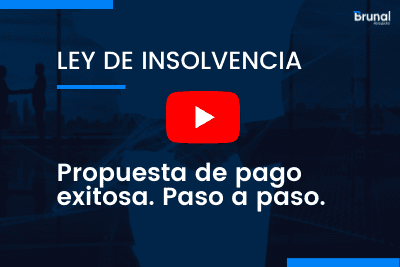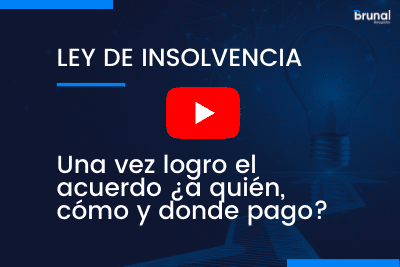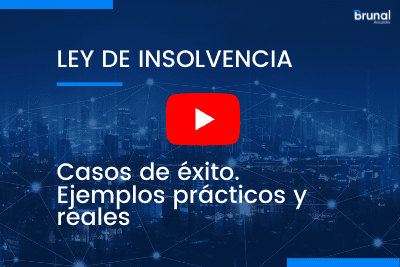There is a way out! Insolvency law for individuals
There are situations in people’s lives over which they have no control, such as the loss of a job, unplanned expenses, illnesses that affect their health; these circumstances prevent them from earning the same income and thus affect or reduce their ability to pay.
When it is not possible to comply with the financial commitments acquired and the debtor is in default, Colombian law has a law called “Insolvency Law” for non-trading natural persons, this legal tool allows debtors with economic difficulties to reach a debt negotiation agreement with all their creditors.
What are the benefits of the Insolvency Act?
- All legal proceedings that have been initiated against you for the collection of your debts and liens are suspended, once the application is filed and accepted.
- You will be able to protect the money necessary to cover your personal expenses and those of your dependent family.
- Negotiate your debts through an agreement with all your creditors.
- It is a process regulated by law, which guarantees compliance with the agreements.
What are the requirements of the Insolvency Law for natural persons?
- Be a natural person and not engage in commercial activities.
- Having two or more overdue obligations.
- Overdue obligations must be to two or more different creditors.
- Overdue obligations must be more than 90 days past due.
- These overdue obligations must represent more than 50% of your total debts.
How long does the process take?
In Colombia, the insolvency proceedings of natural persons have a maximum term of 60 days, which may be extended for only 30 more days.
How can I start my insolvency process?
Schedule your appointment today, we will listen to your case to present you with a proposal for financial and legal support that adapts to the requirements of your process, allowing you to reach an agreement with all creditors. To do so, we request the following information:
- List of creditors: all obligations must be listed, both those in arrears and those that are up to date in their payment.
- Banks: credit statement.
- Natural person: support of the debt, bill of exchange, promissory note, etc.
- Taxes: copy of the property tax bill, road tax.
- Cellular lines: copy of the bill receipt.
- Relation of assets: certificates of tradition of real estate, certificate of tradition of vehicles.
- List of judicial processes: if any, indicate what type of process it is (mortgage or unsecured), before which court it is being processed, the case number and the status of the process (is there a date for auction).
How much is the process worth?
To know the value of the process and present you with a proposal of accompaniment, our law firm has a team of professionals in the insolvency area that provides immediate support and guidance, during our advice you are informed of the amount to be paid for the process taking into account the process to be advanced, either liquidation of assets or debt negotiation agreement and the amount of liabilities to be negotiated. Quote.
Before whom is the process initiated?
Once the aforementioned legal requirements are met in order to qualify for the insolvency regime for natural persons, before the conciliation centers authorized by the Ministry of Justice to carry out the process.
Documents
1. Data of the interested party in insolvency.
2. Marital status (marital and patrimonial partnership).
3. Causes that originated the insolvency situation.
4. List of Creditors with the total amounts of the obligations.
5. Inventory of movable and immovable assets.
6. Source of income and employment.
7. List of living expenses.
8. Determination of maintenance obligations.
9. Total expenses.
Important
It will NOT apply to natural persons engaged in commercial activities, it will NOT apply to non-trading natural persons who have the status of controlling companies, whose insolvency will be subject to the regime provided in Law 1116 of 2006 or “Corporate Insolvency Law”, if you are a retailer Click here.
Liquidation of assets
This is a purely judicial stage that is reached after the failure of the debt negotiation stage, due to the nullity of the agreement or the breach of the payment agreement.
 (+57) 300 300 98 59
(+57) 300 300 98 59







